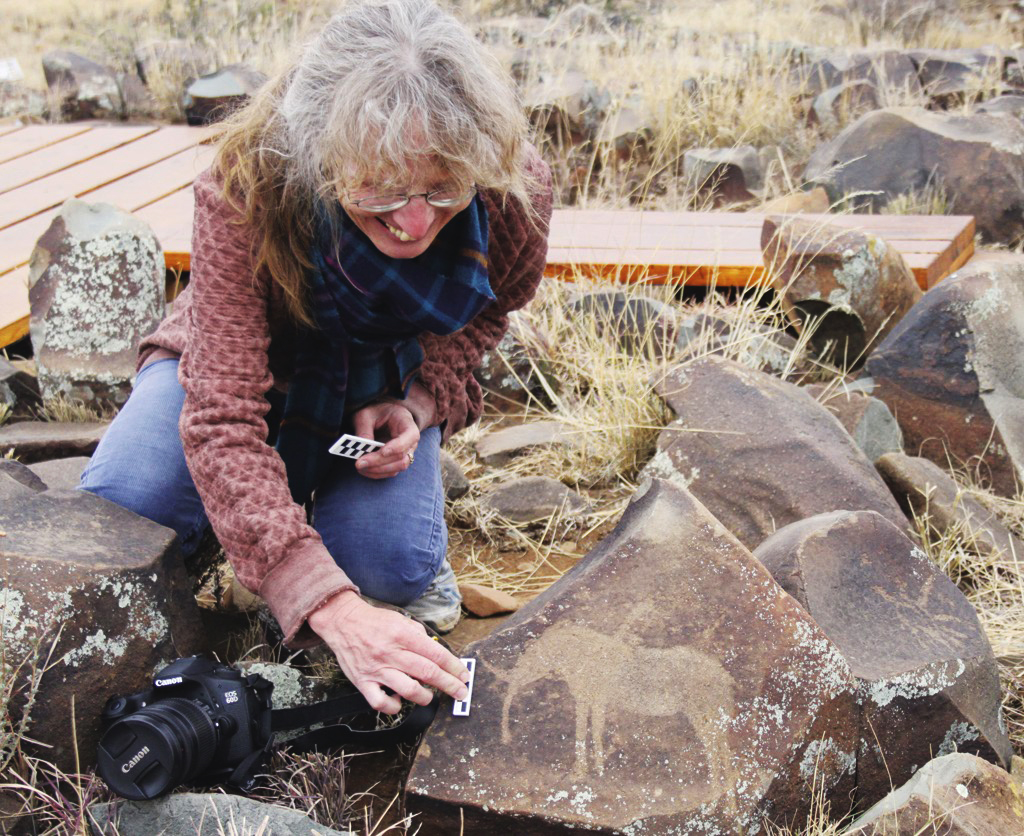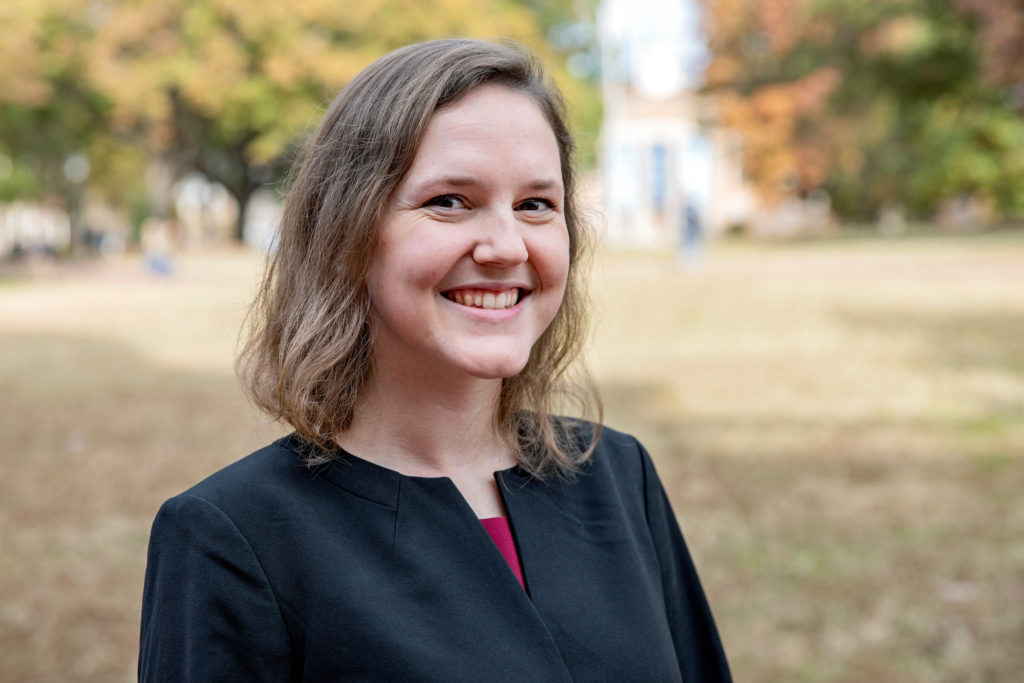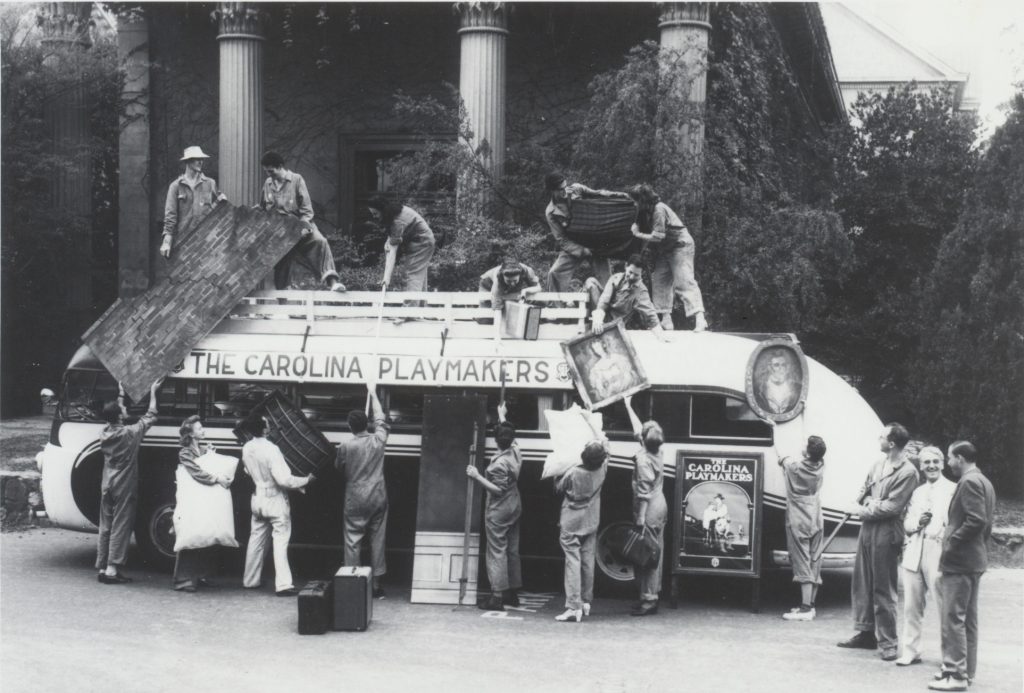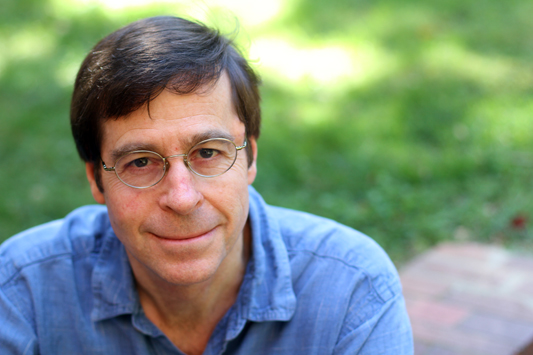Six Carolina undergraduates will head off on exciting journeys in the United States and abroad to pursue independent study projects of their own design, thanks to the Burch Fellows Program in the College of Arts and Sciences.
The program, supported by Lucius E. Burch III, a 1963 Carolina graduate, recognizes undergraduates at the University who possess extraordinary ability, promise and imagination, and funds their research projects.
The 2011 Burch Fellows will tackle such diverse topics as microfinance in Colombia and Guatemala, open-pit copper mining in Alaska, repairing broken medical equipment in Costa Rica’s rural hospitals, and studying devastating genetic disorders among the Amish in Strasburg, Pa.
The Burch Fellows and their projects include:
Farhana H. Ahmed is a junior majoring in philosophy and peace, war and defense with a minor in Arabic from Apoka, Fla. She is interested in taking the first steps to restoring Arabic philosophy to the western canon because of its crucial role in the development of the field during Medieval Times. Focusing on texts previously overlooked by western philosophers, she will translate and analyze Arabic literature from philosophers like Avicenna, Al-Ghazali, Al-Farabi, and others as philosophy proper by examining the premises used in the rational arguments presented and evaluating their soundness and structure. She will travel to Pisa, Italy, to work with Professor Amos Bertolacci, a prominent scholar in philosophy and Arabic.
Santiago Beltrán is a sophomore public policy and economics double major with a minor in city and regional planning from Charlotte. His interests and studies focus on community and economic development, with a focus on microfinance. In the 2010 summer, Beltrán helped develop a micro-loan program in Guatemala City, FAC Internacional, and through his experience saw a need and opportunity for micro-savings in the community. He will use his Burch Fellowship to be trained as a savings officer by two reputable and unique microfinance organizations in Colombia and Guatemala. Through his training, he will explore how to teach financial literacy to the illiterate, handle the intricate dynamics of a group-shared loan, balance the uncertainties of managing money with women in a male-dominated society, and more.
Bryce Butner is a junior English and journalism double major from Burnsville. As a result of an adolescence spent on trout streams across Western North Carolina, his interests include fisheries ecology and sustainable fishing practices. With his Burch Fellowship, Butner will travel to Bristol Bay in western Alaska to document the controversy surrounding a proposed open-pit copper mine. If construction of the mine is permitted, the record-setting sockeye salmon runs in Bristol Bay could potentially diminish. He plans to document local sentiment, both pro- and anti-mine, as well as interview local politicians, scientists and mining officials. He will pay particular attention to the fact that, if constructed, the mine could provide jobs for certain impoverished Alaskan communities while simultaneously depleting the economies of other communities. He plans to publish a documentary about the controversy.
Mindy Feng is a junior in biomedical engineering. She was born and raised in Xuzhou, China, but has lived in Kuwait and the U.S. for the latter part of her life. She is an aspiring young engineer with a strong background and interest in medical instrumentation and electrical engineering. Feng will use her Burch Fellowship to work with a nonprofit organization in Costa Rica as a volunteer electric technician to repair broken medical equipments in rural hospitals. Medical equipment is extremely expensive in comparison to the cost of living in developing countries. When instruments break, there are few technicians to repair them, especially in rural communities. She will work with hospital staff to calibrate functional equipment, repair broken devices and train staff to perform preventative maintenance.
Matthew Krantz is a junior majoring in biology with a minor in writing for the screen and stage from Chapel Hill. With the support of the Burch Fellowship, he will travel to Berlin, Germany for a two-month residency at the Center for Stroke Research at Charité – Universitätsmedizin (Medical University) Berlin to develop a system to study small ubiquitin-like modifier (SUMO) and ubiquitin interplay and its role in stroke and tumor growth. At the Charité, from where more than half of the German Nobel Prize winners in medicine and physiology hail, he will work with Dr. Christoph Harms and the Cell Cycle and Brain Ischemia research group. With the use of state-of-the-art techniques in biochemistry and molecular biology, the goal of this science research effort is to produce experimental results that can translate into innovative therapeutic interventions for strokes and tumors.
Kiri Sunde is a junior from Holland, Mich., majoring in quantitative biology and mathematics. With her Burch Fellowship, Sunde will pursue her interest in medical genetics at the Clinic for Special Children in Strasburg, Pa. The clinic treats Old Order Amish and Mennonite children with inherited metabolic disorders. While these “Plain People” have traditionally shunned technology, the devastating effects of the genetic disorders that disproportionally afflict their children have led them to embrace the modern medicine that the clinic provides. During her time at the clinic, she will study glutaric aciduria type 1 (GA1), a form of cerebral palsy and one of the most prevalent genetic disorders among the Amish. By shadowing members of the clinic team, studying scientific literature on GA1, and living with an Amish family with a GA1 affected member, she hopes to gain a greater understanding of this disorder. She will use this knowledge to create educational and culturally appropriate booklets for the families of children with GA1. She is excited about the opportunity to learn more about Amish culture, to prepare for a career in pediatric genetics, and to explore her hobbies of quilting and horsemanship.




